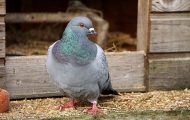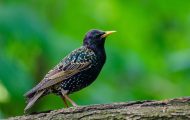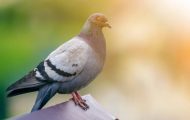It has been proven that an infection connected with bird droppings was a “significant contributor” to the fatality of a youngster at a Glasgow hospital. Is dried bird poop dangerous?
When the youngster was being treated at Queen Elizabeth University Hospital. They appeared to have contracted Cryptococcus, a fungus.
The children’s names have yet to be revealed. According to doctors, the fungus had no role in the death of a second person infected with about the same infection in December.
What exactly is it?
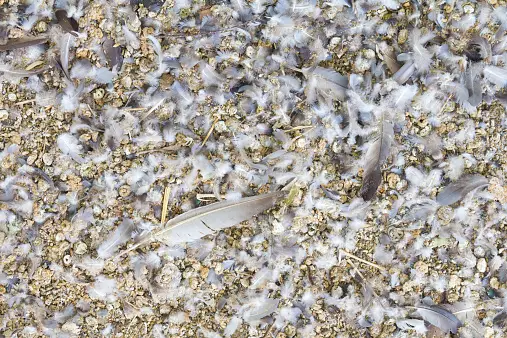
Cryptococcus is a fungus that looks like yeast that exists in the environment.
It can be discovered in pigeon-dropping-contaminated soil.
How are you going to capture it?
In December, the fungus was introduced to the kid who died in a Glasgow hospital.
The likely source, according to experts, has been tracked to a room on the hospital’s rooftop. Pigeon droppings got into the room through a small hole in the wall that was “invisible to the naked eye,” according to Scottish Health Secretary Jeane Freeman.
According to the hospital, infection control measures have been implemented, and no further instances have been reported.
How dangerous is it?
Most individuals won’t become sick, but those who already have a weaker immune system may become ill with chest infections or meningitis.
Prof. Hugh Pennington, an expert on the subject, says situations like these are scarce in the UK.
“It’s frequent in other regions of the world, notably tropical sections, in the United States and other countries where this type of fungus is more prevalent.” However, in the United Kingdom, it is pretty rare.
“There have been occasions where people’s immune systems have malfunctioned. They’re the ones who are vulnerable to this type of problem.”
The infection caused by Cryptococcus cannot be passed from one person to another.
Is pigeon feces dangerous?
Breathing dust or water droplets contaminated with bird droppings can cause various illnesses, including psittacosis, a flu-like sickness.
Some dried bird poop is dangerous and may potentially contain Salmonella, a bacterial illness that can cause diarrhea.
You should take measures if you are cleaning up or coming into contact with dried bird poop. Before eating, drinking, or placing your hands near your mouth, wash your hands and clean any exposed skin.
Similarly, if you’ve been feeding or touching birds, make sure to wash your hands afterward.
You should not wipe up droppings if you have a weakened immune system, such as HIV/AIDS or cancer.
Use bird and bat excrement in your work
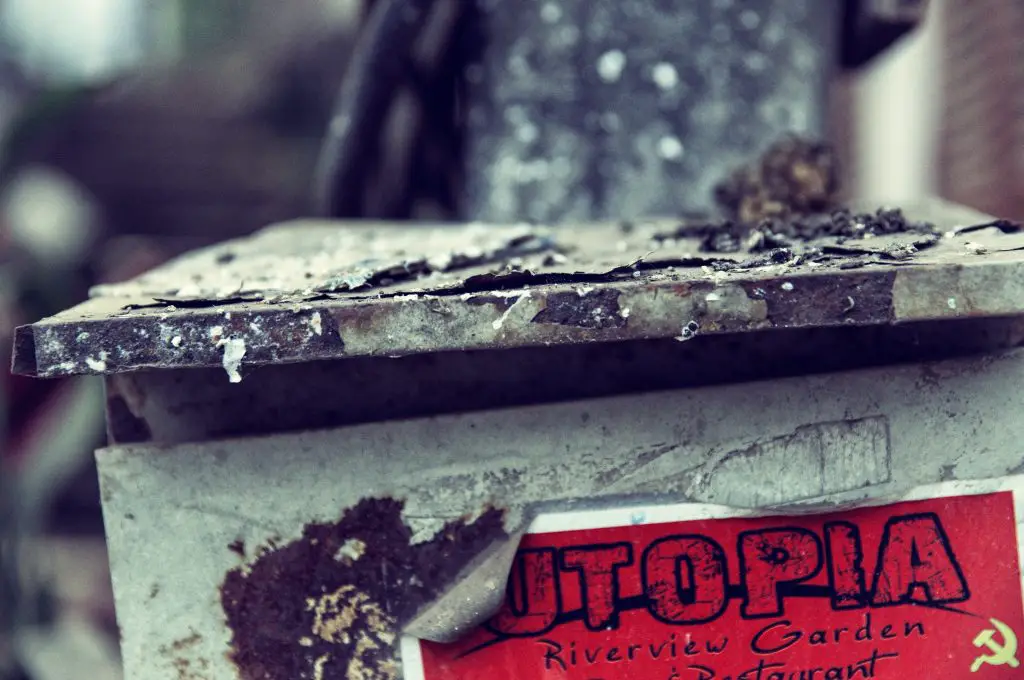
Working with bird or bat droppings might put workers at risk of contracting infectious diseases.
Droppings from birds disturbing tiny amounts of dried bird poop are dangerous and carry minimal danger. But enormous disturbing accumulations of concentrate make dried bird poop dangerous, and droppings have more considerable risk.
Histoplasmosis
It is a fungal infection generated by the Histoplasma capsulatum fungus. It can discover in soil contaminated by dried bird poop (particularly pigeon) or other droppings. Inhaling the fungus spores can cause infection. The most vulnerable include young kids, seniors, and persons with a medical issue or treated for one that reduces immunity.
Cryptococcosis
It is an infection generated by Cryptococcosis neoformans, a fungus. It can find in the surroundings, notably in soil contaminated by bird (particularly pigeon) droppings. Inhaling the fungus spores can cause infection. Infection is uncommon in generally healthy persons, but weakened immunity is more vulnerable. Meningitis (a brain infection) is the most common symptom of cryptococcosis, but it can also affect other body regions.
Psittacosis
Chlamydia psittaci [or Chlamydophilia] is the bacteria that causes psittacosis. Infected birds shed their droppings and respiratory secretions, such as pigeons, parrots, and chickens. Breath in the bacteria might cause infection. Psittacosis usually causes a gentle to average respiratory disease with pneumonia, although it can also result in more severe sickness. The most vulnerable include:
- Young kids
- The senior, pregnant women.
- Persons with a medical disease or experiencing medical therapy that reduces immunity.
Diseases of the gastrointestinal tract
Germs can induce gastrointestinal sickness with dried bird poop dangerous, including vomiting, nausea, and diarrhea. People can become infected when they unknowingly ingest germs, usually through infected hands.
Who is in danger?
Workers who disrupt clumps of dried bird poop dangerous or droppings are putting themselves in danger. Consider the following scenario:
- Cleaners, renovators, and demolish structures, bridges, roofs, and other buildings where bats or birds roost.
- (Cave explorers) Spelunkers and others who operate in caves or further enclosed places with bats or birds are known as spelunkers.
- Specialists in pest management and animal expulsion
- Employees who work in facilities maintenance
- HVAC (air conditioning, heating, and ventilation) technicians
- Employees who work with poultry waste
- Workers handle soil or transparent vegetation in regions where bats or birds live.
Managing the risk of exposure
The most compelling strategy to safeguard workers is eliminating exposure, although it may not permanently be achievable. It cannot avoid risk; it must reduce it to the bare minimum.
Prevent the accumulation of droppings
Seal access points, change nesting or roosting areas, and remove food sources to deter birds. If necessary, seek guidance from a wildlife removal or pest management specialist.
Inspect for dried bird poop regularly and clean up as soon as possible.
Significant accumulations of bat and dried bird poop must clean
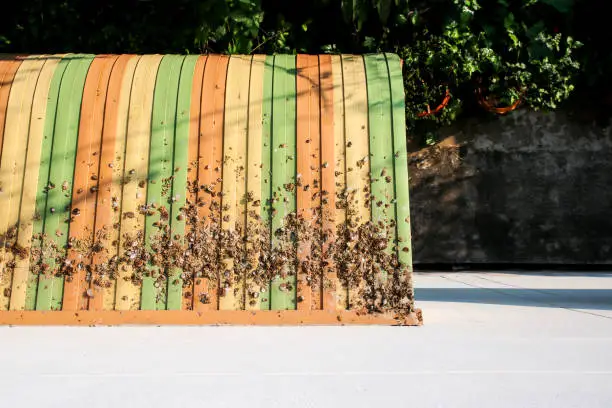
Schedule cleaning efforts when the area is not in use and limit access if possible. If there are any vulnerable people in the area, such as children, senior citizens, or patients, take extra precautions.
- Should avoid aerosols and dust from disturbing dried bird poop as an example,
- Must use dust borders and ventilation management (an industrial vacuum or a HEPA filtration system).
- Air vents, Doors, and windows should all be sealed.
- Cleaning techniques that distribute aerosols and dust should avoided (like dry sweeping, household vacuum, high-pressure cleaning, and compact air)
- Moisten the droppings with a bit of mist of essential or soapy moisture, and keep soaking the material while removing it to avoid it drying out.
After removing the droppings, thoroughly clean the surface with water and soap before applying a disinfectant. To be effective, disinfectants must have the lowest contact time. They might not work correctly if there is organic debris on the surface, such as dried bird poop, so wipe the surface before using the disinfectant. Use a mixture that is with a bar of soap and disinfectant rather.
Place garbage in a receptacle that could be tightly seal for storage, transportation, and disposal.
After each use, clean toxic equipment, and devices
Construction materials and trash that have contaminated should not reuse. Because the germs discovered in dried bird poop are common in the surroundings. The testing surfaces before or after cleaning is unnecessary.
Consider hiring a cleaning agency that focuses on this kind of garbage removal.
Personal cleanliness is essential
Employees should practice personal hygiene. Before drinking, eating, smoking, and after coming into touch with droppings or removing personal shielding equipment, thoroughly wash your hands with soap and water (PPE).
If you’re going to use a parched hand sanitizer, make certain it has at smallest 60% alcohol, use it only on clean and wash your hands with soap and water as soon as possible.
Before working, inspect your skin and conceal any cuts or busted skin with a sterile, dry bandage. If you get an amount at the appointment, clean it up right away and protect it.
Avoid handling your face when operating with dried bird poop, and refrain from eating, drinking, or smoking.
After you’ve finished your work, wash or shower
Workers must have access to washing facilities. Clean operating water, soap, and towels (or an air hand dryer) should included. Portable handwashing facilities should be provided for field personnel. Handwashing signs can use to remind employees to wash the hands.
Workers also need access to first aid, clean eating areas, and clean drinking water.
Information, education, training, and oversight
Provide staff with information on the following topics:
- Working with dried bird poop is dangerous and poses health concerns.
- Safe work methods
- PPE selection and application
- Hand-washing procedures
- Personal safety equipment (PPE)
When working with dried birds poop dangerous or bat droppings. Workers must wear a properly suited particle respirator (PDF, 0.86 MB) to avoid inhaling aerosols and dust. Wear additional PPE, such as gloves, protective clothes, protective eyewear, and boot caps for substantial clean-up tasks. When wearing many pieces of PPE, particularly if you’re operating in a humid climate, take care to avoid heat stress.
Individuals in Danger
Anybody subjected to these risks in large enough quantities runs the chance of contracting a sickness. Specific demographic groupings, however, are of great concern:
- Babies and seniors are particularly vulnerable.
- People with weakened immune systems
- People who have had a respiratory infection in the past
Considerations for Removal
If a buildup of bat or bird dung is observe. The best course of action may be to leave the waste alone in an area where no human activity occurs. If this isn’t the case, and there’s a chance of human exposure does exist, and there are strategies for limiting it. During the removal process, must consider exposure hazards.

